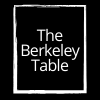Reflections on the Fourth of July from the Son of Two Refugees
Like many young progressives whose parents came from another country, I have a complicated relationship with my homeland — the United States of America. My parents came here as refugees from South Vietnam. I saw what they fled from. The human rights abuses and lack of political freedoms we see now are the same as it was then. I’ve never once doubted that I had a privilege in being born and raised in Southern California.
“But having human rights and political freedoms is a pretty low bar to surpass,” I think, as I type this from the luxury of my air-conditioned Bay Area townhome. My Ezra Klein-liberal values inclined me to look to places like Northern Europe — with their pragmatic mix of social safety nets and free markets — as better ways to organize society.
My relationship with America is further uneased by the last several years (if not decades) of democratic turmoil. Similarly, many of my fellow progressives are inclined to believe America shouldn’t be celebrated at all on this Fourth of July. That on top of the Supreme Court’s decision to overturn Roe v. Wade, its history of slavery, misogyny, institutional racism, religious fundamentalism, classism, imperialism, jingoism, nativism, anti-intellectualism, anti-Semitism, Islamophobia, homophobia, transphobia, warmongering, and genocide are inseparable from the essence of its national identity.
But what I’ve come to realize in the last several months is that there is no American identity that exists beyond our imagination, no Platonic essence of American history. Before the end of the Civil War, there wasn’t even a conception of an “American.” As explored by historian Jill Lepore in her book This America: The Case of the Nation, our national identity has always been an inconsistent, jumbled mess, molded and remolded from one era to the next to suit the needs of whatever demographic or political group that wants to assert itself in American society at that moment in time.
To recognize that national identity is a social or human construct, however, is not the same as believing it doesn’t matter. It does, in the same way that money as a human construct clearly affects the material conditions of our society. As the late philosopher Richard Rorty said, “National pride is to countries what self-respect is for individuals: a necessary condition for self-improvement.”
When we refuse to take part in the continual reimagining of our national identity, it doesn’t simply go away. Instead, the narrative of our country is put into the hands of demagogues who insist, say, that America has always been a white man’s country. Or that Christian nationalism is not only something to be be embraced, but is at the core of America’s history and identity.
That refusal, which involves a nihilistic vision of America’s history as only oppressors doing things to the oppressed diminishes the legacy of great Americans like Frederick Douglass, who saw America in its totality — that being, the constant struggle for freedom and rights; the story of constant overcoming by the oppressed in a society of migrants and refugees to fully realize the promise made in the Declaration of Independence, that all men are created equal.
In his book Achieving Our Country, Rorty paraphrases John Dewey in saying that our options for when we’ve committed a grave sin are: suicide, a life of bottomless self-disgust, and an attempt to live so as never to do such a thing again. “[Dewey] thinks you should remain an agent, rather than either committing suicide or becoming a horrified spectator of your own past. He regards self-loathing as a luxury which agents — either individuals or nations — cannot afford.”
There will be many imagined Americas being celebrated this Fourth of July — as it always has been. I encourage many of my fellow Americans to celebrate not what America is, because what it “is” has never been celebrated, but to celebrate what it can be.

